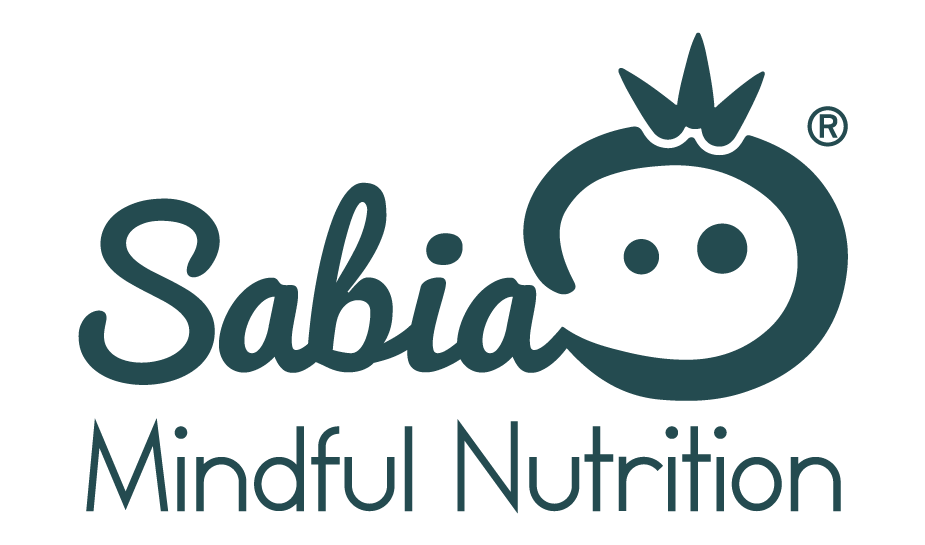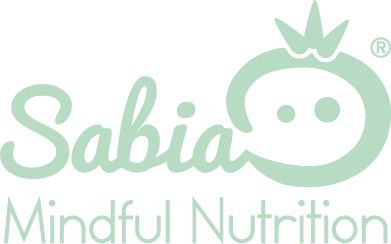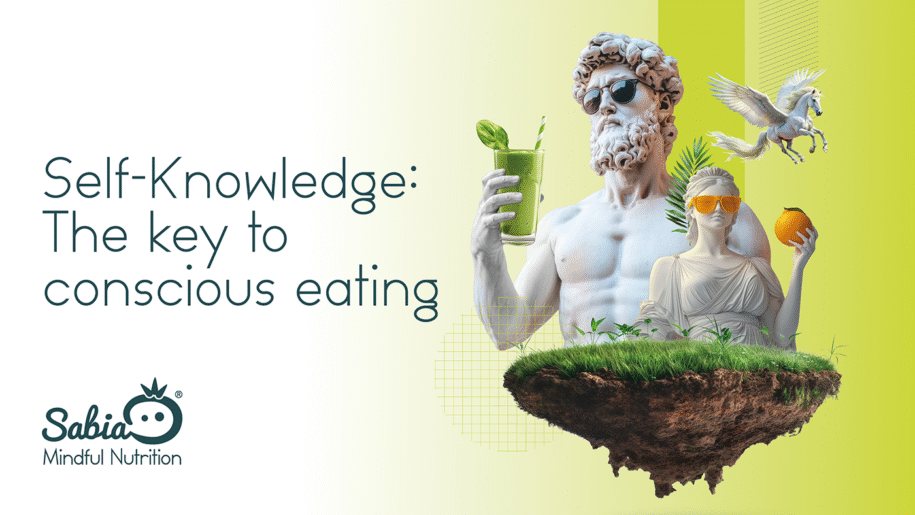Self-Knowledge: The key to conscious eating
In today’s fast-paced world, the quest for healthier eating habits often feels overwhelming. With countless diet plans, nutrition fads, and the constant bombardment of “quick-fix” solutions, how can we truly make lasting changes to our eating patterns? The answer lies in self-knowledge—the ability to understand our body’s unique needs and recognize the emotional, physical, and psychological factors that influence what and how we eat.
Self-knowledge, in the context of eating habits, is about understanding not only what foods nourish us but also how our internal states—whether emotional, mental, or physical—affect our food choices. When we achieve a deeper understanding of ourselves, we can make healthier, more sustainable choices that align with our personal needs and values.
The Link Between Self-Knowledge and Conscious Eating
Conscious eating is a practice that encourages us to be more present during meals. It involves paying attention to what we eat, how we eat, and why we eat. But to truly adopt this practice, it’s essential to cultivate self-awareness. By becoming more attuned to our physical sensations and emotional triggers, we can identify patterns and habits that either serve or hinder our well-being.
One of the most profound ways self-knowledge influences conscious eating is through intuitive eating. Intuitive eating is about listening to your body’s cues, rather than relying on external rules or restrictions. When we have a better understanding of our emotional triggers, hunger cues, and food preferences, we can eat in a way that feels nourishing and empowering.
In a world full of restrictive diets and conflicting nutrition advice, intuitive eating provides a refreshing approach. It’s not about following the latest trend but rather embracing a mindset that values your body’s innate wisdom. According to Evelyn Tribole and Elyse Resch, authors of Intuitive Eating: A Revolutionary Program That Works, intuitive eating helps individuals break free from the cycle of dieting and fosters a healthier relationship with food (Tribole & Resch, 2012).
How Self-Knowledge Enhances Food Choices
-
Understanding Hunger Cues
One of the most fundamental aspects of conscious eating is recognizing when you are truly hungry versus eating out of boredom, stress, or habit. Often, we confuse emotional hunger with physical hunger, leading to overeating or unhealthy food choices. Through self-reflection and mindfulness, you can begin to differentiate between these cues and develop a healthier relationship with food. -
Emotional Awareness and Food
Many of us turn to food for comfort, especially during times of stress, sadness, or anxiety. These emotional eating patterns can sabotage our health goals if left unchecked. By becoming more aware of your emotions and how they influence your food choices, you can start to make conscious decisions about how to handle emotional triggers without relying on food. -
Identifying Food Preferences
Self-knowledge also involves discovering what foods make us feel good and energized. When we pay attention to how different foods impact our energy levels, mood, and overall well-being, we can make smarter food choices. This means selecting nutrient-dense foods that fuel our bodies rather than reaching for processed snacks that may provide temporary satisfaction but lead to crashes later on. -
Breaking Free from Diet Culture
Diet culture often reinforces the idea that certain foods are “bad” while others are “good.” However, self-awareness allows us to move beyond this binary thinking. By embracing a more flexible approach to eating, we can enjoy a variety of foods without guilt or shame. This mindset promotes a healthier, sustainable approach to eating that focuses on long-term wellness rather than short-term deprivation.
The Role of Self-Knowledge in Sustainable Healthy Eating
Sustainable eating isn’t just about choosing nutritious foods—it’s about aligning your choices with your values and lifestyle. When you have a strong sense of self-knowledge, you are better equipped to make choices that not only benefit your health but also fit into your daily routine.
For instance, many people struggle with sticking to a healthy eating plan because it feels too rigid or unrealistic. However, when we understand our personal preferences, habits, and limitations, we can create meal plans that are not only nutritious but also practical and enjoyable. This is where mindful eating comes into play.
Mindful eating is the practice of being fully present during meals, savoring each bite, and tuning into your body’s sensations of hunger and fullness. Studies have shown that mindful eating can help reduce overeating, improve digestion, and enhance overall satisfaction with meals (Kristeller & Wolever, 2011).
When combined with self-knowledge, mindful eating can become a powerful tool for maintaining a healthy, balanced lifestyle.
The Benefits of Conscious Eating: A Holistic Approach to Wellness
Adopting conscious eating practices has a ripple effect on various aspects of our lives. By understanding our emotional and physical relationship with food, we can enhance not only our health but also our mental and emotional well-being. Some of the key benefits include:
-
Improved Digestive Health: Eating mindfully and with awareness can improve digestion by allowing the body to properly process food without distractions. This leads to better absorption of nutrients and less discomfort after meals.
-
Better Weight Management: When we eat consciously, we are less likely to overeat. By tuning into hunger and fullness cues, we can naturally regulate our food intake without restrictive diets or calorie counting.
-
Emotional Balance: By addressing emotional eating patterns and replacing them with healthier coping mechanisms, conscious eating can help reduce stress and improve overall emotional health.
-
Increased Energy Levels: Choosing whole, nutrient-dense foods over processed options can provide a steady stream of energy throughout the day, improving productivity and mental clarity.
Conclusion: Embrace Self-Knowledge for a Healthier Relationship with Food
Self-knowledge is the foundation for a conscious, balanced, and sustainable approach to eating. When we take the time to understand our body’s unique needs and emotions, we empower ourselves to make decisions that promote long-term health and well-being.
If you’re ready to take the next step toward healthier eating habits, consider investing in a personalized nutrition plan that aligns with your values and goals. At [Your Company Name], we offer customized meal plans designed to help you embrace conscious eating while nourishing your body with the nutrients it craves.
References
-
Tribole, E., & Resch, E. (2012). Intuitive Eating: A Revolutionary Program That Works. St. Martin’s Press.
-
Kristeller, J. L., & Wolever, R. Q. (2011). Mindful eating and its relationship to health and well-being. The Journal of Nutrition Education and Behavior, 43(1), 6-10.


